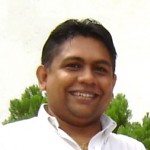A Conspiracy Theory: Tread With Extreme Caution Sri Lanka
The first lessons taught to any student of the science of politics almost invariably includes a reference to the 16th century Florentine philosopher Machiavelli and his celebrated thesis, “the Prince“; where his principle line of argument revolves on the attainment of “power” as the means of securing all other political ends. In later years the French scientist Jean Bodin attributes a name to this, identifying it as “sovereign power” upon which all political authority vests, which in the subsequent century fellow Frenchman, lawyer and philosopher Baron Montesquieu further splits or “separates” into three units; as (a) Legislative (b) Executive and (c) Judicial sovereign power, upon which all governments are institutionalized. Coincidentally in one of his 17thcentury works the latter propounds that “there is no greater tyranny than that which is perpetrated under the shield of the law and in the name of justice”. Although in the subsequent century English law professors like Dicey postulate a theory (looking at their Monarchy and the power of the “Commons”) that elevates Parliament (or the Legislature) as the Supreme power of these three sovereign institutions, such a “supremacy” does not exist in a Constitutional Democracy like Sri Lanka; in our country the Constitution is supreme and we are all subject to the Rule of Law equally.
Now therefore the following must only be read, at least for the moment as a hypothesis, a possible scenario that may very well be one of many probable reasons as to why we are seeing, what we are seeing in our society at present; a theory only, not factually based on any real evidence that is in my possession but an attempt to explain this sudden resurgence of religious autonomy amongst many of us, identifying ourselves staunchly as Buddhists, Islamists or Christians and pointing fingers at other Sri Lankans not of that same religious persuasion; this is only an attempt to propound a theory as to why!
The Pursuit of “Political Power” in the World Today:
Retaining the above explanation of the science of political theory as a means of securing sovereign power in our minds, let us now assimilate as to how in the 21st century nations go about securing it. There is obviously what we see domestically (or the overt acts) such as a political party system or more preferably individual based campaigning as we see in the “new France” of “local persons” endemic to the domestic political fabric in competition at periodic elections (or the absence thereof, like here in Sri Lanka), resulting in a change of ruling regime or the continuation of an existing one; based upon who secures a majority will of the masses, which we may broadly define as a democracy.
However is it really that simple in today’s world? Is political victory at an election (or even otherwise) purely the result of Peoples majority will; that is it only the majority will of a nation-state that ends up securing its sovereign Executive or Legislative power? I should like to venture a theory that it is not.
Particularly in the present context of global trading and inter-dependant economies it would only be a naïve assumption that only the domestic will of a population ultimately decides a victory or defeat; what of massive party funding or the several global players that pump-in millions to every such election? Is there really no co-relation to the subsequent trade and commercial agreements that successive governments enter upon assuming political power with the process of such persons or party competing for such political office? What of “strategic interests” of the global powers (wherever they may emanate from), be it India, China or other such new economic powers or the more traditional “West” like European powers or the USA or even the former socialist bloc (with hardly any difference at present); do they really have no “interest” in who or which alliance attains or remains in power domestically?
If indeed we are to agree, that it would be naïve to assume that such “foreign interests” had no part to play in the assumption of political power in a country domestically, then we must also agree that such “forces” do not engage in the process directly, for fear of intimidating the concept of sovereignty or territorial integrity of free nation states (if we are truly so “free” – which in itself is a paradox, but best left for another discussion); then they must operate either through or against individuals or groups operating in the local political fabric with the masses, be they be political parties or individuals, religious groups or institutions or other such pressure groups like NGO’s or civil society organizations, through which or whom such “extra territorial interest” would try to attain their domestic political gain.
It is in this train of thought that I should like us to engage at this present juncture.
A fact – Sri Lanka has a majority Buddhist population:
When comparing the last available published information obtained from the internet (2012) based on the figures of Department of Census & Statistics to the figures of approximately a century ago (1911), the following facts emerge as to the demographic equation of our country in terms of religious ratios:

Accordingly the following facts are discernible in terms of the above demographic chart:
 By
By 